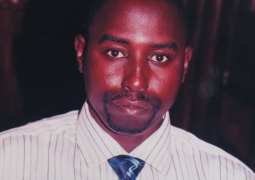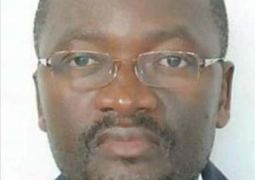A news release from the Office of the President said further that all intended bureau operators are to apply afresh for licences.
This decision, according to the Government, has been taken because forex operators have failed to comply with advice and warnings by government for sanity and fair play to take place in the forex market.
Whilst the exchange rate of the US Dollar is now fixed at D35, the release stated that under the new licences to be issued for bureau, transactions are to be done strictly within the confines of bureaux and therefore all foreign exchange transactions in the streets “would be deemed illegal”.
The release further declared the following conditions: “No foreign exchange bureau is allowed to ship foreign exchange out of the country. All foreign exchange shipments are to be done through banks and only after approval from the Central Bank.
“Individuals travelling out of the country are required to declare foreign currency they are travelling with and the maximum limit for foreign exchange anyone is allowed to travel with is $9,000. Furthermore security officials are mandated to seize any amounts above this threshold.”
Whereas this action is deemed necessary to ensure there is sanity and fair play in the dealing of forex in the country, it has triggered more questions than answers, as the general public or ordinary man in the street has been left baffled for many reasons.
In this current situation, the first thing that comes to mind, and which people are presently faced with, is where do we get the minimum amount of dollar and other major international currencies like the pounds, the Euro and the CFA that we may need to travel beyond the shores of The Gambia?
It is no hidden secret that whilst businesspeople of calibre could access forex from commercial banks in the country, the ordinary person who may need forex to travel beyond the shores of The Gambia could not, as banks are always reluctant to sell foreign currencies to them. So in the absence of forex bureaux, where does the ordinary man buy forex to execute his personal transactions?
Is the authority, especially the arm of the Central Bank, prepared to impress upon the commercial banks to sell forex to the average man in the street?
What about remittances to people in the country: are the people going to be starved of receiving funds from abroad to meet their needs at home for as long as it takes for forex bureaux to come to light again?
Another important consideration is that: would fixing the selling price of the dollar at D35 help the situation, when market forces are also at play?
These questions and many other related issues, such as the plight of Gambians working at forex bureaux who may lose their sources of survival, have to be given serious consideration while the process of reregistering forex bureaux takes place.
For economic efficiency to prevail, many transactions, especially in the financial system, would need to occur. So it is essential that the steps towards sanitizing the forex market are taken cautiously.
“Dialogue is the best solution’’
Henry David Thoreau





